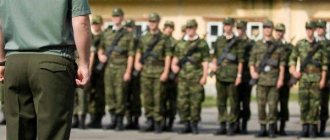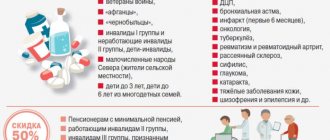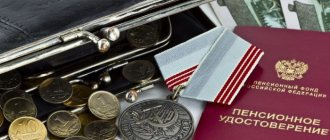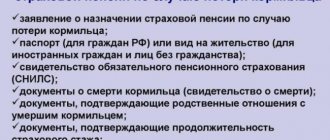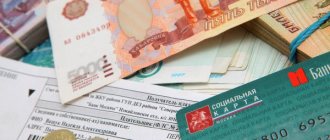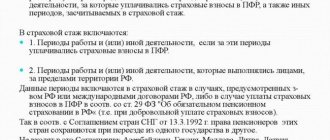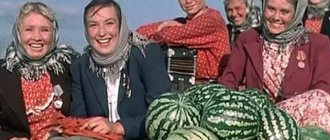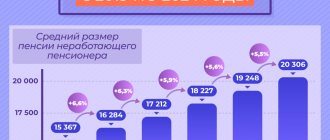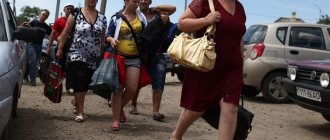Social security for pensioners in Russia, although not at the same level as in non-CIS countries, still exists. People who receive a pension and have no other income to support themselves or are classified as low-income may qualify for assistance from the state. Moreover, these are not only cash bonuses to the required payments, but also a number of other privileges.
These issues are dealt with by a special social security service for pensioners. It is this organization that you should contact to clarify unclear issues related to social assistance for older people. Its specialists also explain what kind of help a person can count on and in what volume.
What is Social Security for Retirees?
The social orientation of the state presupposes comprehensive care for the citizens living in it. First of all, this area of activity of the country's managers is manifested in providing people with accessible medicine, quality education and assistance to people of disabled age, as well as to those who are not able to provide for themselves for a number of reasons.
Such citizens are granted pensions based on age, disability, or for length of service. The principle for determining payment amounts depends on many factors. The main one can be considered the deductions from a person’s salary to the Pension Fund that were received there from him throughout his entire working life. However, not many Russians received (and receive) good salaries, so the financial well-being of pensioners in our time leaves much to be desired. Often people's pensions are at a level lower than the approved subsistence level. To smooth out this inequality, the state has created programs that regulate the social security of pensioners.
Who is entitled to social assistance?
In this article, we do not consider all categories of citizens who have the right to count on state assistance, namely pensioners. Unfortunately, few of them know what benefits and additional payments they are entitled to by law.
Social security for pensioners is a matter of more than one article, but we tried to summarize this topic and provide the most concise and useful information on it. So, first of all, they can count on help:
- unemployed pensioners;
- working pensioners;
- military pensioners;
- disabled people supported by the state;
- people who have lost their breadwinner and are also under the care of the state.
Moreover, the smaller a person’s cash payment, the more help he can count on from the authorities. However, this does not mean that pensioners who have high pensions do not have the right to demand assistance from the state. Such citizens are also entitled to certain types of benefits.
What categories of pensioners are entitled to support?
Support may not be provided to all elderly citizens. Financial assistance is provided only if the legal requirements for the provision of such benefits are met. The following can count on such mandatory support:
- Single non-working pensioners whose income does not correspond to twice the minimum subsistence level;
- Disabled people and non-working pensioners living with relatives or spouses, if the income for each family member is not equal to twice the minimum subsistence level;
- Non-working pensioners who are assigned departmental payments if they have a document confirming the provision / non-provision of financial assistance.
Types of assistance
Social security for pensioners is carried out on the following points:
- Supplement to pension (SDV).
- Targeted assistance to people who find themselves in difficult life circumstances.
- Benefits for utility bills.
- Subsidies.
- Legal assistance.
- Medical social security for pensioners - vouchers, discounts on the purchase of medicines, assistance with operations, patronage, etc.
- Assigning a social worker to a pensioner who will help him around the house and provide primary medical services.
- Travel benefits.
- Reduced tax rates.
Here you need to understand that not each of these points may be applicable to a specific pensioner. Experts consider any situation separately and in their decisions are guided by the person’s financial situation, the size of his pension, additional payments and other types of assistance in monetary terms.
Social assistance at home for elderly and disabled people
In addition to the fact that the legislation provides for a set of social services for pensioners and disabled people, as well as other vulnerable categories of citizens, the state provides them with additional support. It is for people who cannot take care of themselves. Social security workers provide assistance in the form of:
- inpatient care in boarding homes for the elderly, veterans, and disabled people;
- semi-stationary care in night or day care departments;
- social services at home;
- provision of rehabilitation services;
- urgent social services.
Taking into account the characteristics of each applicant, the following types of social services are provided:
- medical;
- pedagogical;
- legal;
- household;
- legal;
- labor
Social services
Social workers provide assistance to pensioners and disabled people in the following areas:
- purchase (at the expense of the beneficiary) and delivery of food, periodicals, books, and essential goods;
- cleaning of residential premises;
- cooking food;
- providing assistance in paying utility bills and other bills;
- assistance in carrying out repairs;
- assistance in organizing housing maintenance services;
- delivery of drinking water and heating of boilers and stoves, if the housing of a disabled person or pensioner is not equipped with central water supply and heating;
- handing over clothes and items to dry cleaning for repairs (payment is made by the beneficiary);
- subscribing to periodicals, etc.
Medical services
Social service workers have the right to provide medical assistance, which consists of:
- carrying out medical procedures (injections, dressings, etc.);
- provision of sanitary and hygienic services;
- monitoring health status (measurement of pressure, temperature);
- providing first aid;
- purchase and delivery of medications and medicines;
- providing assistance during visits to medical institutions, hospitalization;
- visiting a pensioner or disabled person undergoing treatment in a hospital;
- providing comprehensive support when registering for spa treatment.
Psychological and legal assistance
Social services for the elderly and disabled provide legal and psychological assistance. Among the main services are:
- assistance in obtaining education;
- assistance in employment;
- assistance in organizing assistance from lawyers and notaries;
- assistance in writing letters and statements;
- assistance in obtaining benefits and social support.
- Transport tax may be canceled on Russian cars
- Alimony for parents of pre-retirement age
- Folk remedies for increasing potency after 50 years
How to get help from the state?
In order for a pensioner to receive an increase in pension, a benefit, or to receive any other assistance, he must write an application to the social security authorities with a corresponding request. Without this formality, government services will not assign or award anything to a person.
In addition, in Russia there is practically no unified system of assistance to older people. The amount of all types of social assistance and payments is regulated in the regions. The leaders in terms of increases are the Northern District, St. Petersburg and Moscow.
Social security for pensioners also greatly depends on the cost of living in the country, on the conditions in which a person lives, whether he has a spouse, children or close relatives. Assistance to residents of the capital and other large settlements is calculated based on the city social standard (SSS). In Moscow in 2017-2018 it was approximately 14.5 thousand rubles; in the Moscow region this is a slightly smaller amount - pensioners living in the region cannot receive less than 9 thousand rubles. At the same time, for capital pensioners who have lived in Moscow for at least 10 years, the GSS is 17.5 thousand rubles.
How to apply
The process of obtaining state support consists of several successive stages and is the same for all regions, be it Moscow or another locality:
- Contact the local branch of the Pension Fund or the Multifunctional Center in person or through a legal representative. It is possible to submit an application through your personal account on the Pension Fund Internet portal.
- Write an application for the provision of EDV. Since NSO is automatically assigned to recipients of monthly payments, there is no need to fill out a separate application. The exception is persons who have been exposed to radioactive radiation.
- Receive a certificate giving the right to receive NSO, which indicates the category of the beneficiary, the period for assigning the EDV and the list of services.
- Interesting facts about intervertebral discs
- Extirpation of the uterus with appendages
- 4 facts that need to be taken into account when applying for a tax deduction when buying an apartment
List of required documents
To provide a monthly payment, which is the basis for the appointment of social services, it is necessary to provide certain documents:
- completed application;
- passport or other equivalent document;
- documentary evidence of the right to receive EDV (certificate of disability, certificate, etc.).
After assigning an EDV, in order to receive social services at the railway ticket office, when purchasing a ticket or when purchasing a voucher, you will need to provide:
- a certificate issued by the Pension Fund of Russia, which confirms that the applicant has the right to receive NSO;
- passport;
- a document evidencing the right to receive EDV.
When contacting pharmacies, you will additionally need a prescription, which is prescribed by your attending physician.
Cash payments
Pensioners who are on state social security have the right to count on a monthly increase in their pension if their income is too low. This is the so-called monthly cash payment, which in each case is calculated individually by the Russian Pension Fund. It is to one of the departments of this organization that a person must contact in order to receive an allowance.
Its amount depends on many factors:
- pension size;
- availability of benefits and subsidies;
- the person's marital status;
- whether he has other income.
In the event of any changes in the financial situation of a pensioner, the EDV may be reduced, increased or cancelled.
Payment for housing and communal services: subsidies and benefits
First, you need to separate the very concepts of benefits and subsidies. The first ones are given to certain categories of citizens, most often to low-income families, but sometimes they are also given to those who have special merits to the state. These include war veterans, disabled people, Chernobyl victims, their widows or dependents. Social security for military pensioners is also, as a rule, expressed in the accrual of benefits to this group of citizens for housing and communal services. As a rule, we are talking about a 50% discount.
The subsidy is given to those pensioners whose utility bills exceed 10-25% of their income (this figure is different in each region). In addition to the pensioner’s income, social service workers take into account the earnings of other family members in which the pensioner lives.
Who is eligible for a social worker?
Assistance from social service workers is provided on an application basis. The following may apply for it:
- citizens who have reached the generally established retirement age;
- disabled people of all categories;
- WWII participants.
Social services for pensioners and the disabled are provided by social service workers free of charge to all those whose monthly income does not reach one and a half times the subsistence level established in the region of residence of the beneficiary. All other categories of applicants are charged a fee, the amount of which is regulated by law.
Medical assistance, sanatorium holidays and treatment
Pensioners are the most vulnerable part of the country's population. Low incomes and poor living conditions affect their health. Taking this into account, the state is trying to take care of those in need, creating some privileges for them:
- provides free or discounted sanatorium-resort treatment;
- provides discounts on the purchase of medicines;
- fully or partially pays for dental prosthetics services.
In addition to issuing vouchers to places of health, pensioners also have the right to count on a reduction in the cost of transportation costs that they incurred to get to a sanatorium or resort. Compensation for the cost of tickets is provided for them.
What is included in the NSO
Social services for pensioners and disabled people, included in the NSO, can be provided to the beneficiary in kind or in cash - the right to choose remains with the beneficiary. This means that the citizen independently determines whether to take advantage of the benefit or receive compensation in the amount established by law:
| Service | Monetary equivalent |
| Providing medications and medical products according to a doctor’s prescription | RUB 828.14 |
| Providing disabled children with specialized products used in therapeutic nutrition | RUB 828.14 |
| Allocation of a voucher for sanatorium-resort treatment | RUR 128.11 |
| Free travel on suburban railway and intercity transport to and from the place of treatment | RUB 118.94 |
Patronage and care for single pensioners
Some elderly people find themselves in such cramped living circumstances that they are entitled to targeted assistance from the state. First of all, this applies to disabled people, single pensioners, and seriously ill elderly people. If they find themselves in a difficult situation, they are entitled to benefits for food from social security. Pensioners are given food packages, household chemicals, shoes and clothing, and necessary medicines. Such assistance is also available to people affected by flooding, fire or theft. In addition, the state partially compensates pensioners for the costs of purchasing certain types of household appliances, furniture and repairs to residential premises.
A social worker is assigned to those people who cannot cope with housework themselves or have completely or partially lost self-care skills. Depending on the situation, he can go shopping for a pensioner, clean his house, and prepare food.
The legislative framework
Preferential conditions for veterans are prescribed in the Federal Law “On the Status of Military Personnel.” They are classified into certain groups. Some benefits are issued from the state budget, others based on regional rules. Thus, depending on the subject of the Russian Federation, norms may vary.
But the differences themselves are not so often observed. Typically, only certain regions provide beneficiaries with specific guarantees based on a certain financial base.
In Moscow, for example, WWII veterans, as well as the spouses of deceased veteran pensioners, receive, in addition to the already provided cash payments, additional ones, that is, an increase in their military pension.
The norms specified in the legislative document discussed above usually apply to the following categories of persons:
- With officer rank;
- Midshipmen;
- Ensigns.
Travel benefits
Those pensioners who do not give up social benefits in order to receive monetary compensation in return (about 200 rubles per month) can ride for free on all city types of public transport:
- buses;
- trams;
- trolleybuses;
- metro.
They also have discounts on travel on commuter and long-distance trains. At the same time, they will have to pay in full for trips in taxis or minibuses.
There is also a program in Russia to compensate for travel to vacation spots. It is provided in the form of tickets that can be used to get to the place of treatment, or money to purchase them. However, this program concerns only residents of the Far North and areas equated to this region.
